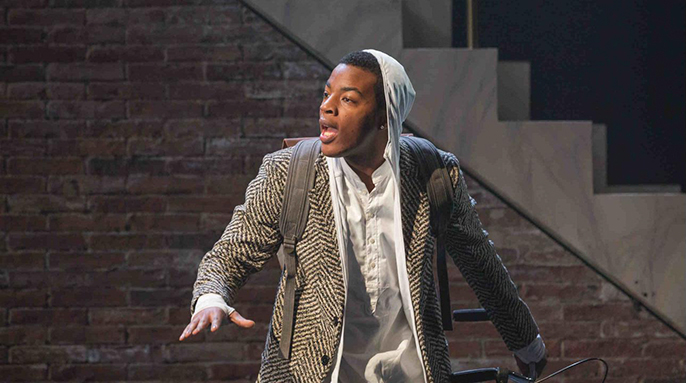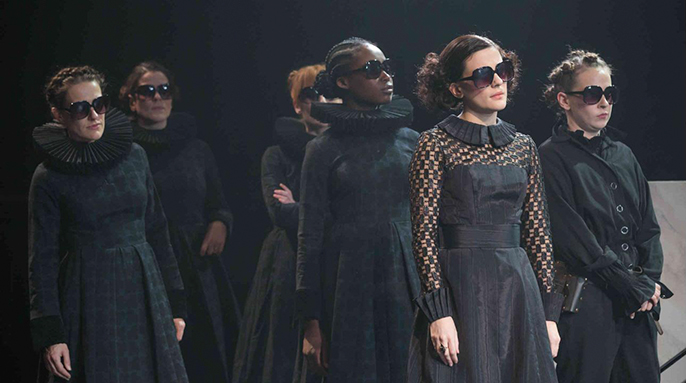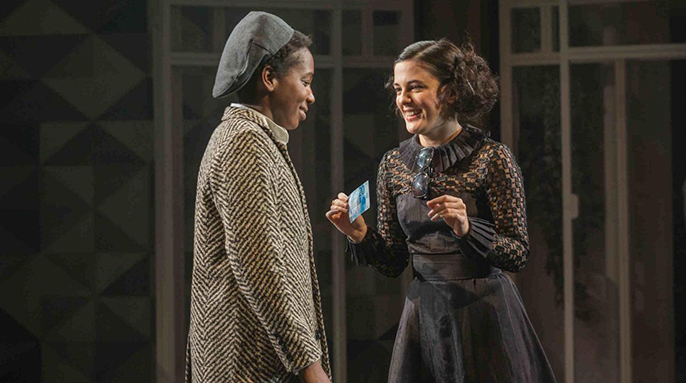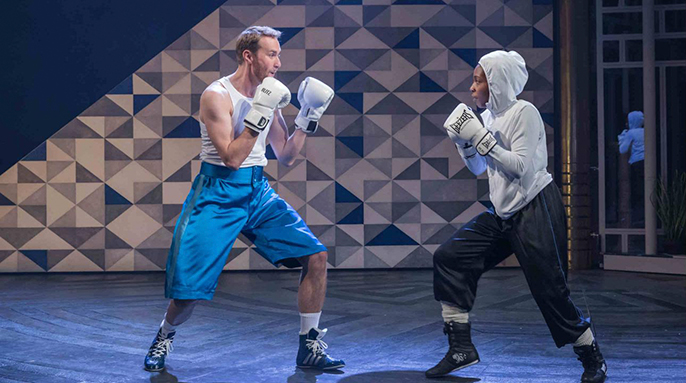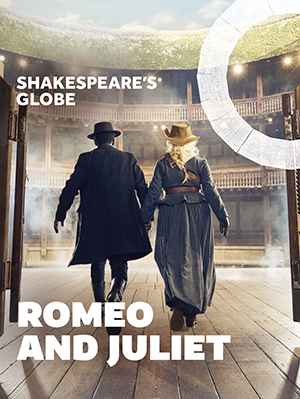You can always rely upon the National Theatre to ‘stage well’ and, with this updated version of William Shakespeare’s ‘Twelfth night’, they don’t disappoint.
The performances are excellent; the Bard’s words sounding almost conversational in the mouths of this cast.
Dominating the middle of the stage at the beginning of this production is – what appears to be – the bow of a huge ship. As the storms batter it, we see the ship revolve around a main pole, the crew clinging on desperately.
Thereafter, this ship transforms into several rooms within at least two noblemen’s castles, a nobleman’s garden (with working fountain), a noblewoman’s bathroom (replete with filled bathtub), a nightclub, and a church. It is an extraordinary piece of design and almost threatens to upstage the actors and The Bard – but not quite.
The play is one of Shakespeare’s comedies – the plot being more farce than anything: ‘Viola’ (brilliantly played by Tamara Lawrence) and ‘Sebastion’ (Daniel Ezra) are twins separated by the aforementioned shipwreck. Being alone and a long way from home, Viola decides to disguise herself as a boy named ‘Cesario’ – ultimately finding herself employed by Duke Orsino (Oliver Chris). The Duke, in turn, is in love with Olivia (Claire Cordier), a local noblewoman. Citing the death of her father and brother, she constantly rebuffs The Duke, leading to ‘Cesario’ being sent to Olivia to speak on his behalf. Of course, Olivia falls for ‘Cesario’ and – needless to say – Viola secretly loves The Duke, but cannot tell him in her present ‘male’ identity.
As with most of Shakespeare’s oeuvre – things get a lot worse before resolving themselves for the better for some, anyway.
Olivia’s household is a web of intrigue; full of disgruntled servants, disaffected relatives, and secret agendas.
The most entertaining of these is personified in Olivia’s faithful – but dour – servant, Malvolia (Tamsin Greig). Originally written as a male character, this part is both tragic and comic – often at the same time. Ms. Greig’s wonderful performance is a master-class of physicality, comic timing and – ultimately – pathos; it is the highlight of an evening of superb moments. Certainly, the pivotal ‘garden scene’ – where she discovers a (forged) letter and frolics in the fountain – is a sheer delight.
Special mention must go to the wonderfully engaging Tamara Lawrence, Doon Mackichan (Feste/’Fool’), and Tamsin Greig
Simon Godwin’s direction is clear-sighted and sympathetic. He allows the cast space and time to engage with the audience, and lets the comedy-beats breathe; this – in turn – allows the (few) moments of melancholy to ring true. The use of the musicians – both on and off the stage – is superb. Indeed, the modern musical forms – used to underpin both the characterisation and the story – are a testament to musical director Dan Jackson.
The costumes – though stylised – are modern, which helps to make this production more relatable.
The performances are excellent; the Bard’s words sounding almost conversational in the mouths of this cast. Special mention, though, must go to the wonderfully engaging Tamara Lawrence, Doon Mackichan (Feste/’Fool’), and the aforementioned Tamsin Greig.
This farcical tale of mistaken identity and political intrigue in 1600’s Illyria is as much about the revenge of the serving classes – and a sending up of the self-styled ruling classes – as it is a treatise on the ‘romanticisation of romance’. Let’s hope that – in these troubling times – its premise of a ‘storm before the calm’ rings true. However, bearing in mind how relevant Shakespeare’s work still remains, maybe we shouldn’t hold our breath.























